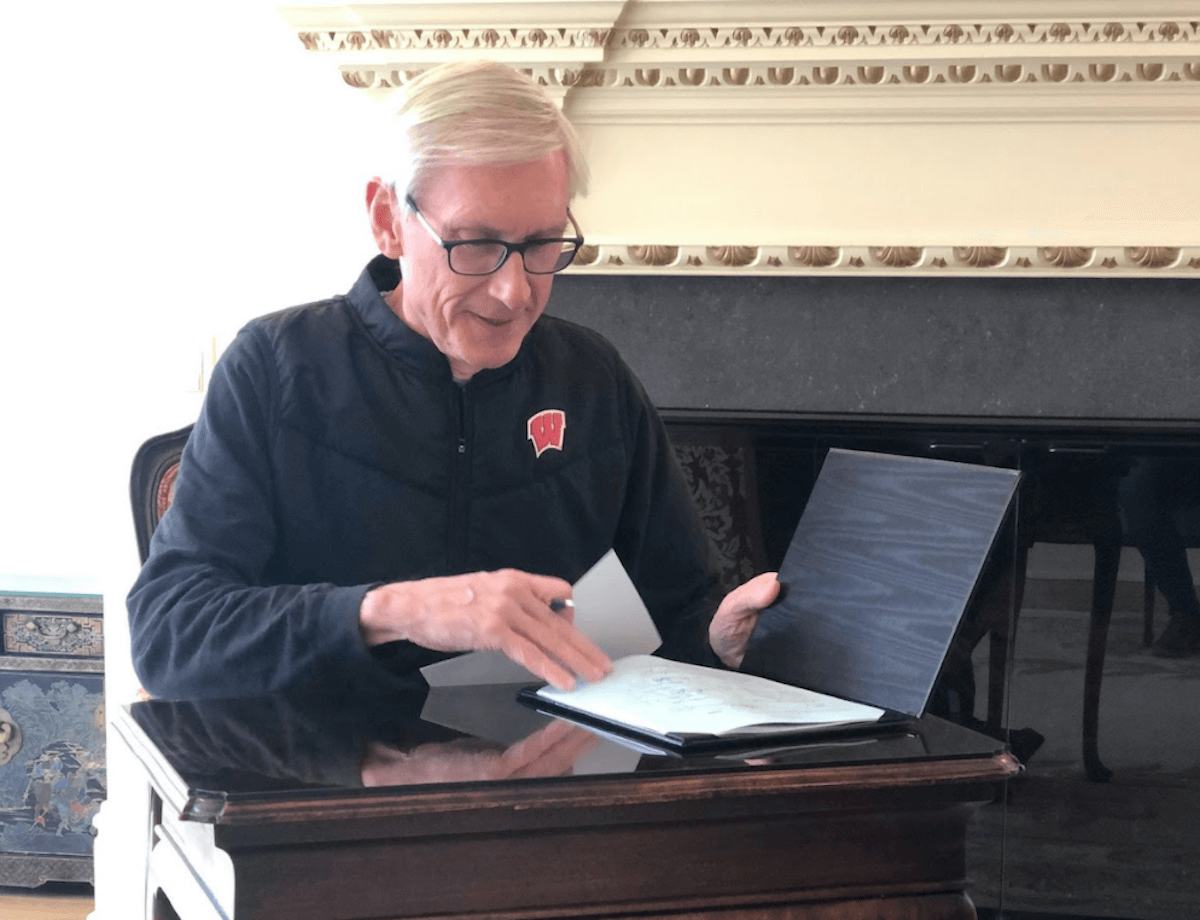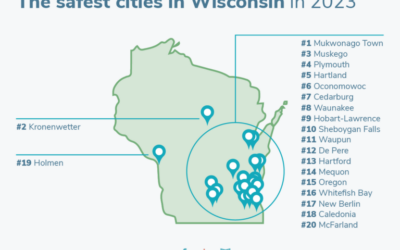
#image_title
Safeguards backed by scholars, faith leaders and healthcare workers
Nearly 70 organizations including healthcare workers, public health agencies, spiritual leaders and constitutional scholars submitted briefs to the Wisconsin Supreme Court Wednesday in a legal show of support for the state’s extension of the safer-at-home order to contain the spread of COVID-19.
Republican lawmakers filed a lawsuit April 21 to block the extension that was originally scheduled to end last Friday. It is now in place until May 26. The court gave state health officials until Tuesday to file briefs and Wednesday was the deadline for those not directly named in the case to file briefs of support.
Republican lawmakers have until the end of Thursday to file responses before the court decides whether or not to accept the case.
The lawsuit claims Gov. Tony Evers and the top three ranking officials at the state Department of Health Services overstepped their authority when extending the safer-at-home order beyond the original period. The suit argues they instead should have followed the regular process in the Legislature for passing emergency rules.
At a minimum, however, that process takes 20 days, which is too much time to waste while managing a fast-moving pandemic, argued the governor’s legal counsel on a call with reporters Wednesday.
If the court sides with lawmakers, rather than with state health officials and Evers, medical professionals warned the state would be dealing with ongoing “hotspots” like the one now occurring at meat packing plants in Brown County.
On Wednesday, the state health department released data showing it has conducted 187 investigations at specific locations, or hotspots, across the state since the outbreak of the virus was first reported in Wisconsin at the end of January.
This includes 97 long-term care facilities, 25 group homes, 11 healthcare facilities, and 48 non-healthcare places of employment. Northern counties are the only portion of the state where no such outbreaks have been reported.
Dr. James Conway, with the UW School of Medicine and Public Health, pediatric department and division of infectious diseases, described COVID-19 as an “incredibly contagious disease.”
He said one-third of the state’s population is either over 60 years of age or has a pre-existing medical condition. That puts them in a more vulnerable category of contracting the virus if every county has the ability to decide on its own when businesses should be allowed to reopen.
“Until we have the capacity to test enough people and do contact tracing, we would pretty rapidly, within 1 to 2 weeks of lifting the safer at home order, start to see hotspots emerging in unpredictable areas, mostly urban, but again, this is an unpredictable disease,” Conway said.
He said the fact the number of cases has gone from doubling in two to three days to between 10 and 14 days speaks to the effectiveness of the safer-at-home order.
Statewide, roughly 66,630 people have tested negative and 6,520 have tested positive for the virus. Of those testing positive, 1,489, or 23 percent, have required hospitalization and 308 people have died, according to DHS data.
Conway joined the Wisconsin Public Health Association, Wisconsin Nurses Association, Wisconsin Chapter of the American Academy of Pediatrics, Wisconsin Association for Perinatal Care, My Choice Family Care and more than 50 doctors, nurses, pathologists, professors, and public health experts from around Wisconsin in filing a brief in support of the state health department to order the extension.
“From nurses and doctors to pastors and community leaders, the message to state lawmakers and the court is loud and clear: Safer at Home is saving lives,” said Evers in a statement. “This is an unprecedented outpouring of support, and I hope people in the State Capitol listen.”
Nearly 20 constitutional scholars from law schools such as UW-Madison, Rutgers, Columbia and Vanderbilt argued in a separate brief that allowing the Legislature to strip power from the executive branch would slow down the response time during a pandemic and has no legal precedent.
“The Department of Health Services has a mandate to stem this epidemic—a mandate the Legislature itself conferred and maintained in light of the devastating effects of past epidemics,” reads the brief. “Now, contrary to over 100 years of public health law, the Legislature asks the court to strip DHS of its vested statutory authority and empower the Legislature to execute the law. Nothing in the Wisconsin Constitution permits, let alone requires, such a counterproductive approach to a public health crisis.”
A protest against the extension of the safer-at-home order Friday in Madison included calls for reopening places of worship, with dozens of protesters carrying signs with that message.
On Wednesday, dozens of pastors, priests, rabbis, other religious leaders and the Wisconsin Council of Churches filed a brief in support of the state health department’s ability to maintain the lead in fighting the virus.
Rabbi Bonnie Margulis said in her statement that “for Jews, pikuach nefesh – saving a life – is paramount above all other commandments. For Christians, the invocation to “love your neighbor as yourself.”
“This virus most cruelly affects the most vulnerable in our society – the elderly, the immune-compromised, and particularly and disproportionately affects African Americans and other communities of color,” Margulis said. “Social distancing has been shown in past pandemics to slow the spread of disease, and it seems to be doing the same now. The Safer at Home order is effective, and necessary, to keep us all safe.”

Multiple deaths in shooting at Abundant Life Christian School in Madison
The suspected shooter, a juvenile, is thought to be among those killed. At least six others have been wounded, as well. NOTE: This is an active...

FBI figures show 15% drop in violent crime in 2024
During the first quarter of 2024, there’s also been a 13% drop in aggravated assault, according to the FBI. Murder and rape both decreased by about...

Celebrate Wisconsinbly: A guide to the state’s weird alcohol laws
Did you know that the average Wisconsinite enjoys 634 drinks per year? That’s nearly 150, or an entire keg, more drinks than the national average....

Wisconsin Democrats propose new gun safety measures on campus
A new bill would allow firearms to be banned campus-wide rather than building by building. Saying current rules don’t go far enough to assure safety...




